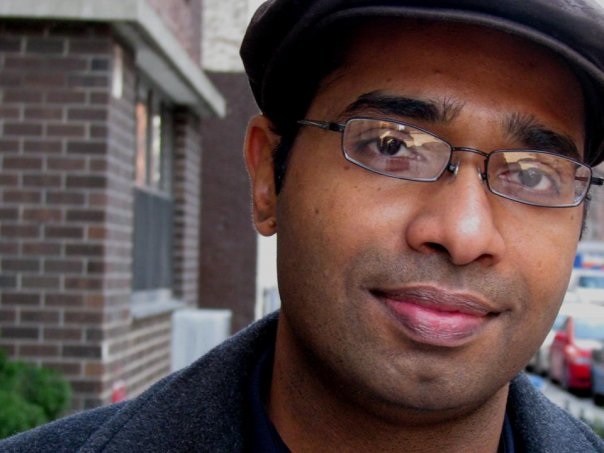
Indian American writer and director Abi Varghese, speaks about his new comedy series, which premiered on Eros Now.
Indian American writer and director Abi Varghese is particularly excited about his new comedy series Metro Park, which premiered on Eros Now, a South Asian streaming and video-on-demand service, on Sunday. Featuring Ranveer Shory and Omi Vaidya, the series follows the life of a simple immigrant Indian family making sense of their lives and aspirations in America.
Metor Park has already had a great jump-start, when Varghese, Vaidya and other cast and creative team members announced the show’s premiere by ringing the bell at the New York Stock Exchange on Friday.
The first major work of Varghese, who was born in Kerala, was a Malayalam sitcom series that aired on the prominent Malayalam channel Kairali for two years, nearly a decade ago. That series, Akkara Kazhchakal, was followed by a movie Akkarakazhchakal (2011), in which he collaborated with Ajayan Venugopalan, who is also the co-creator of Metro Park. Varghese also directed another Malayalam movie based on the immigrant experience, Monsoon Mangoes, which hit the theaters in 2016.
Earlier this week, the writer-director spoke to the American Bazaar about Metro Park, among other topics.
Tell us all about Metro Park. The idea, the concept, its airing and why it may be important in times today to have a show like that in America.
[Co-creator] Ajayan [Venugopalan] and I have been working on the idea of Metro Park for a couple of years. A lot of the concept ideas and characters have come to us from our daily lives. We try to find the comedy in real family life, and there is no shortage of it. We wanted to make a series that is light-hearted and something that was easily relatable. Today I feel that there is a shortage of family content — something that the whole family could enjoy together. Metro Park hopes to be an entertainer for the entire family.
How did the NYSE bell-ring come about? Was it the first time that an Indian American series and its cast launched their show by ringing the bell?
The bell-ringing came to us as a surprise. The Eros team contacted us saying that they have something big planned for the launch. We never expected it would be at NYSE. The whole experience was amazing and a once-in-a-lifetime opportunity. When Ajayan and I were creating the series, we never thought that a simple show like ours would get to be part of such an extravagant promotional event. But kudos to Eros Now, who always believed in the product and made this happen. We are very grateful.
Your previous Netflix series Brown Nation, too, was a wit-laced take on immigrants in America. Is there any reason why you want to talk about the immigrant experience?
I don’t think we go out of our way to talk about the immigrant experience. In Brown Nation and Metro Park, although the story revolves around immigrants, the plot was never driven on that. Brown Nation was an office comedy about a struggling IT company and the owner’s [struggles] to maintain a proper life / work balance. In Metro Park, the situations largely revolve around the family dynamics and family issues like dating, dieting, pregnancy etc.
What would you say about brown representation on American television and the entertainment industry today. What stereotypes have we broken and what needs to be broken?
I think when we create a show it should not just focus on just representation. I feel that there should be a soul to the show, no matter what ethnicity or race it talks about. If the audience can empathize with the characters and situation, I truly believe that it can cross all boundaries.
You describe yourself as Coconut on Instagram. The term has been used both hilariously and sometimes as a confused token of identity for South Asians in America. How do you feel it defines you?
I was born in Kerala, which is the land of coconuts. Came to the US when I was about 6 years old. When I got into writing and doing short films as a teenager, we called ourselves the “Infamous Coconuts.” The name stuck. We even called our production company by that name. I don’t think we ever had an identity crisis or anything like that. The term coconut was more a play on where we originated from.
Talk to us about your Malayalam sitcom Akkara Kazhchakal, which aired on a Malayalam channel for two years nearly a decade ago. How was the response? Do you think there is a growing audience for regional Indian content in the United States?
Our Malayalam series Akkara Kazhchakal was the first web series for India. It did quite well, and surprisingly has aged well even after all these years. We see this series still being the topic of discussion in many TV/Film groups and the audience for it is still grown. Hope this will be the case with Metro Park as well.
I think regional Indian language audience in the US is a market that not yet capitalized on yet, perhaps it’s a very small niche market. However, the flip side is that there are great stories that come out of these specific cultural groups that can be the basis of shows like Akkara Kazhchakal or Metro Park to the larger outside market.



